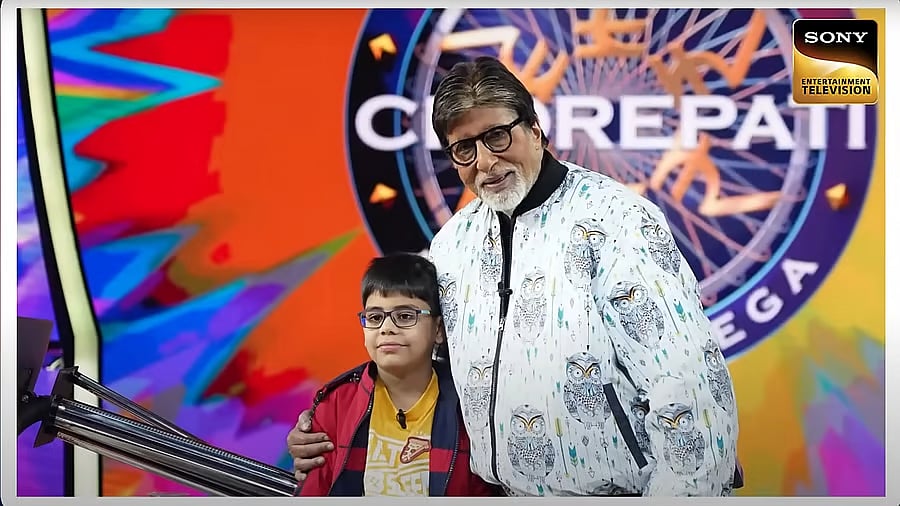
Ishit Bhatt with Amitabh Bachchan on the show.
Credit: YouTube/SET India
The recent Kaun Banega Crorepati (KBC) episode featuring a Class V student has sparked a storm on social media. Viewers of the quiz show were divided -- some admired the boy’s confidence; others found his behaviour brash and disrespectful. To many, it wasn’t confidence on display but arrogance.
It is worth pausing to reflect on this fine line. Confidence is a healthy belief in one’s abilities without diminishing others; it stems from self-awareness and competence. Arrogance, on the other hand, is an inflated sense of self-importance which often belittles others to feel superior.
For those who missed the episode: the young contestant began by telling the host, Amitabh Bachchan, not to explain the rules -- he already knew them. He answered the first few questions without waiting for the options, and he got them right. His composure and quick wit drew applause from the audience, including his parents. Encouraged, he grew more confident. But when a tough question came, he confidently asked the superstar host to “lock it” -- four times over --only to be proved wrong. The anticlimax was swift; he left with no winnings.
Social media erupted. Many criticised the child’s overconfidence and lack of respect and his parents for encouraging such behaviour. Others defended him as a bright, uninhibited boy being himself. Even Amitabh Bachchan, ever composed, appeared momentarily at a loss.
Was the child at fault—or the adults around him?
The child is not to blame; perhaps the child behaved this way because no one corrected him before. When clever children speak up, parents and teachers often applaud. Intelligence and confidence are appreciated; excellent manners less so. He should have been told that confidence should not come at the cost of good manners and respect for others.
In this case, those who trained him for the show should also have prepared him for the decorum such occasions demand.
Some even speculated that his conduct was scripted — a far-fetched conjecture. Still, respect for the host — not because he is Amitabh Bachchan, but because he occupies the seat of authority-- is basic courtesy.
Psychologists call this pattern ‘Six Pocket Syndrome’: when a child, doted on by six adults — parents and grandparents — develops a sense of entitlement and a struggle with patience, sharing and low tolerance for frustration. The fault, then, lies less in the child and more in the environment that indulges him.
Here, the child is exposed to a new environment. The ostentatious ambience and the attention he receives must have triggered a rush of adrenaline in him. Children today grow up in a more expressive, assertive world. They are encouraged to voice opinions and ask questions and become uninhibited and independent — qualities that are valuable but need balance.
To ruthlessly troll a 10-year-old online is inexcusable. The scar left by this episode on the child and his parents is likely to be deep. Many of the critics forget that the child is just 10 years old, and adult standards should not apply to him.
The brunt of the social media troll was borne by the child’s parents and parents in general for condoning rudeness in the guise of smartness. However, it is also unfair to blame just the parents.
This incident rings a warning bell -- for parents, teachers and viewers alike. Families and schools together shape the adults of tomorrow. Children learn far more from how we behave than what we tell them. The habits of respect, restraint and empathy must be cultivated early.
We are responsible for our actions. We reap rewards for our good actions, much the same way as we receive punishments for our wrongdoings. This is the law of nature, and children should learn this from both their parents and their teachers. Narcissism — the obsession with oneself —is the modern malaise. Its antidote is empathy: the ability to think of others.
The boy from KBC may have lost a game but perhaps gained a lesson for his life. And so should we — that intelligence and success mean little without respect for others and grace.
Good manners open closed doors; bad manners close open ones.
(The writer is Director, Little Rock, Brahmavar, Udupi)